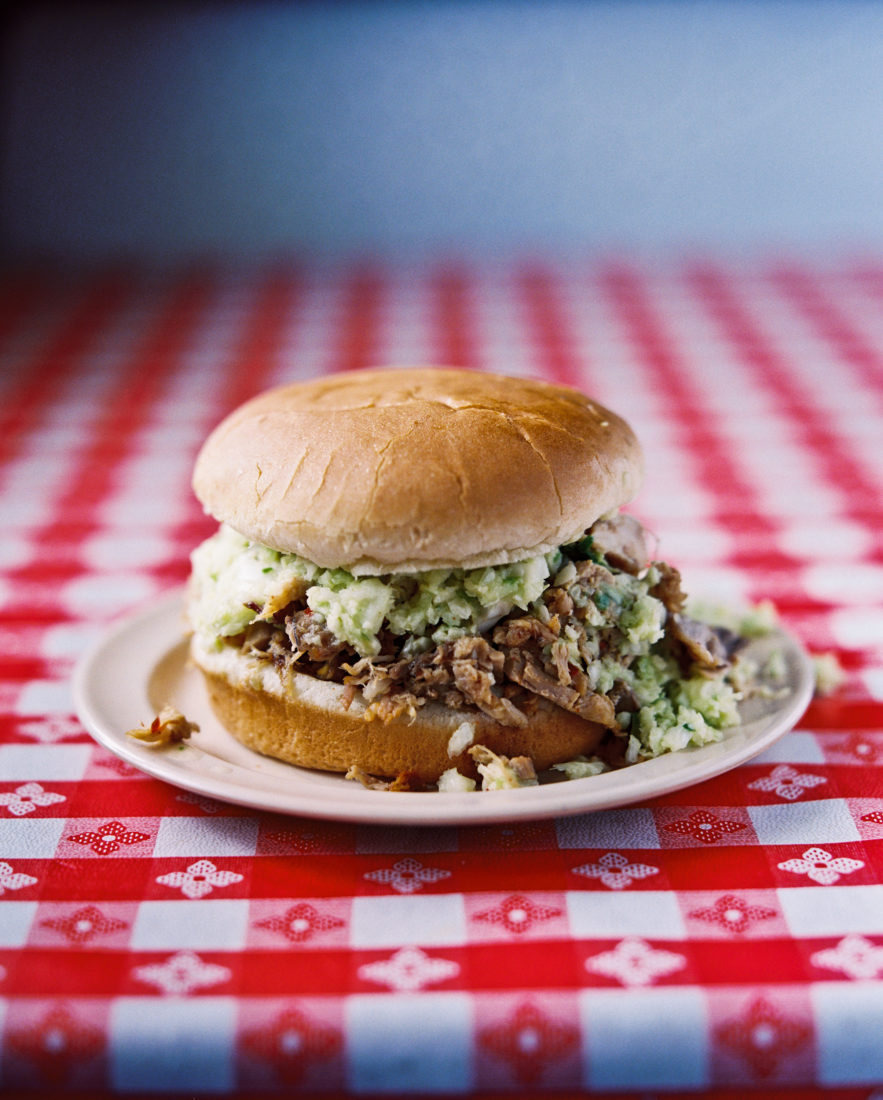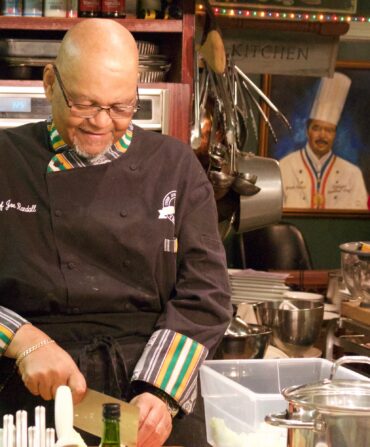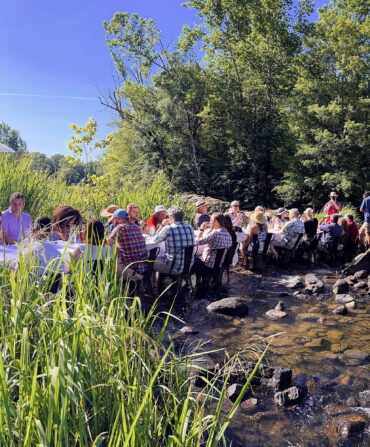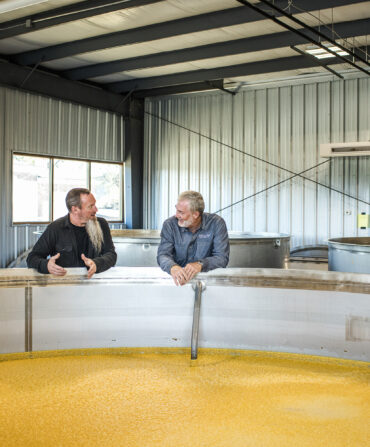Is it time for followers of the Carolinas’ true ’cue—pork only, cooked over wood only—to put out the fire and call in the hogs?
If you’re looking for omens, signs and portents, I can give you the three usually required in declaring trends, all in North Carolina in just four months: In December, owner Keith Allen quietly announced the closing of Allen & Son in Chapel Hill, considered by many to be the perfect fulcrum between Eastern North Carolina and Lexington barbecue styles. Allen opened in 1970, when he was 19, and still cooked every shoulder over wood. That was followed in January by the closing of Bill’s Barbecue in Wilson, founded by the late Bill Ellis in 1963. And then, in March, came the most startling loss of them all: Wilber’s in Goldsboro, founded in 1962 by barbecue icon Wilber Shirley, was shuttered for nonpayment of taxes.
For followers of pit masters, that’s a loss of 161 years of combined history. And that’s definitely the pits. As dire as it sounds, though, it’s worth remembering that the path of Carolinas barbecue was never carved from stone. It’s more like a dirt road that gets paved, and widened, and paved again.
A lot of the beloved family-owned barbecue “joints” that dot the Carolinas look like something out of the 1960s, with their imitation-pine paneling and fading portraits of World War II battleships. That’s because they were out of the 1960s, when cars and gas were so cheap, people took country drives just for entertainment.
Maybe what’s happening in barbecue now shouldn’t surprise us. Aging owners and tiny restaurants can’t hang on forever. It’s tough to make a living off a $4 chopped-pork sandwich, especially if you have to chop down a tree to cook it.
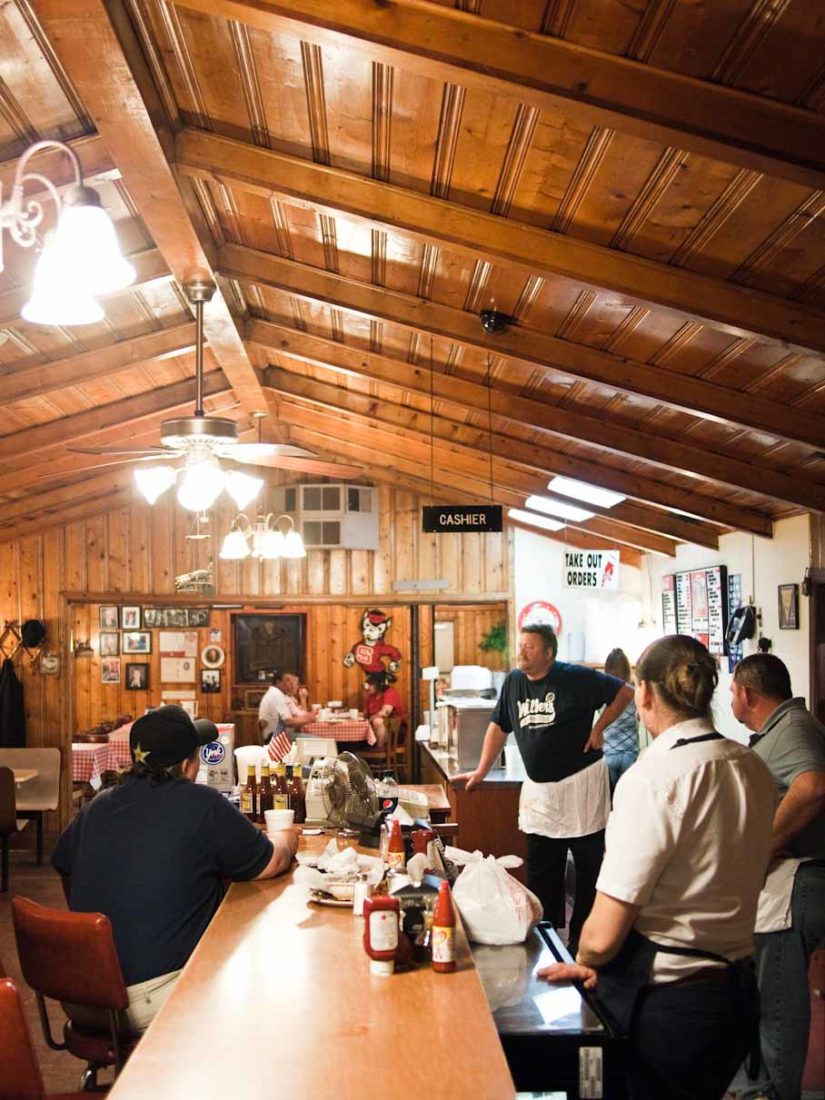
Photo: Peter Frank Edwards
Inside Wilber’s, in Goldsboro, North Carolina.
The old places are beloved in their small towns, but not every old joint still has barbecue worth a special trip. If we’re being honest with ourselves, plenty of the small places that shifted away from wood cooking to survive now make better chili dogs and fried chicken. As an author and former food editor for The Charlotte Observer, I’ve been exploring Southern barbecue icons for thirty years, and I’ve eaten more musty coleslaw and wan, greasy shreds of pork than I care to remember, often at places that locals declare the best barbecue in the world.
Instead, we’re seeing a splintering of worlds: There are the fad barbecue restaurants, where you can pile Texas brisket, Memphis ribs, and Carolina chopped pork all on one plate. You can find versions in any city in the South now—look for vintage license plates on the walls and Edison bulbs dangling over the bar taps with craft brews.
Then there are the artisan places, like Rodney Scott’s in Charleston, probably the only restaurant that looks like a Burger King but takes its mission seriously enough to rake in a James Beard Award for its chef. And Scott has plenty of company: Lewis Donald of Sweet Lew’s in Charlotte, Wyatt Dickson and Ben Adams of Picnic in Durham, Elliott Moss of Buxton Hall Barbecue in Asheville. They may charge more than Keith Allen ever dreamed, but they’re also pursuing barbecue with the intensity of a religion, tying their futures to real-wood pits or pedigreed, old-breed hogs. They charge more for food that’s worth more.
The pursuit of better (or at least, more thoughtful) barbecue hasn’t just meant a change in cooking methods and higher-quality ingredients. The location of barbecue is also changing. Instead of small towns and country crossroads, the new barbecue temples are in cities, where they can draw more customers, both locals and visitors, who don’t blanch at a $10 sandwich and a $16 mixed-meat plate.
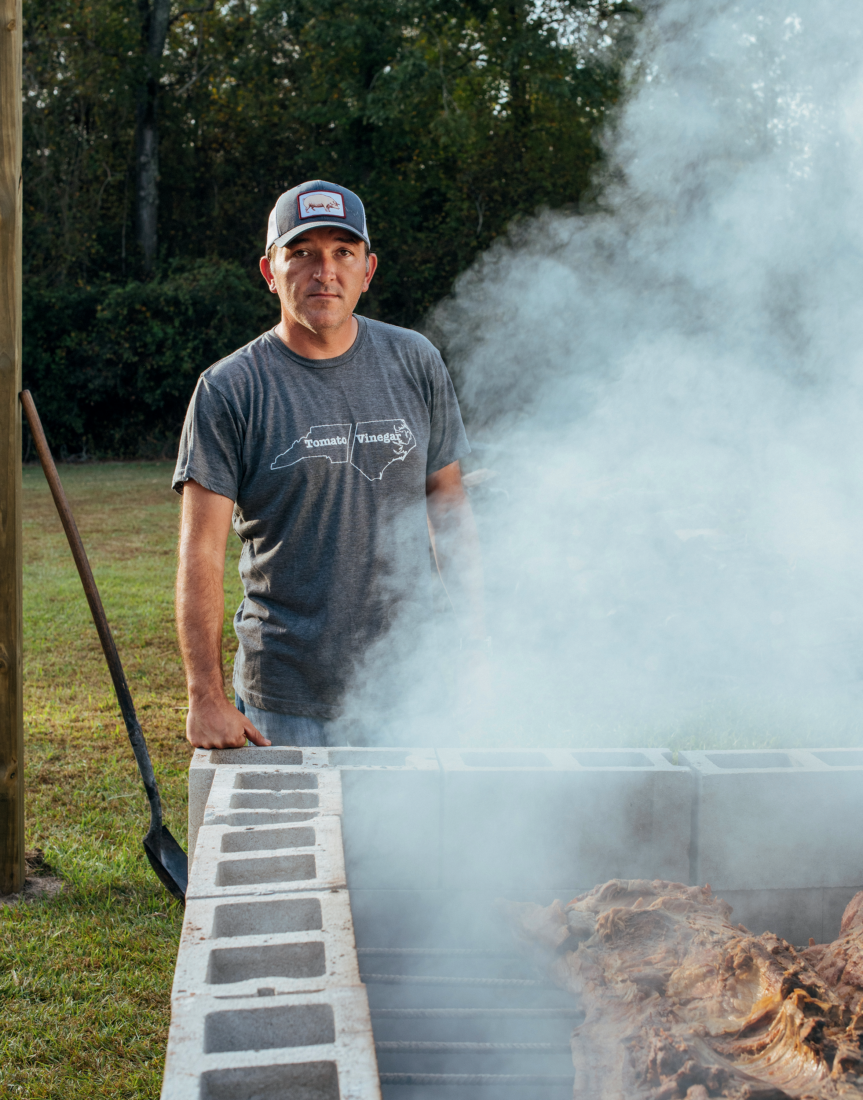
Photo: Denny Culbert
Sam Jones at the concrete-block barbecue pit he built in the backyard of his Ayden, North Carolina, home.
Sam Jones, the scion of the Skylight Inn family, still runs his family’s small barbecue joint in rural Ayden, North Carolina, population 5,000, but also built a much larger, modern restaurant down the road in Greenville, a university city with 92,000 people. Jones is a pragmatist: He knows the romance of the old-style barbecue world draws customers, but he knows the economic model has to change, too. As he told me in a recent Garden & Gun interview:
“The media has created this persona of a pit master, standing in a smoky haze with the sun at his back in the door of the cookhouse, with smut on his face and dirty pants. And if I’m that guy, I’m not running my business.”
Keith Allen, Wilber Shirley, and Bill Ellis would probably see his point.


